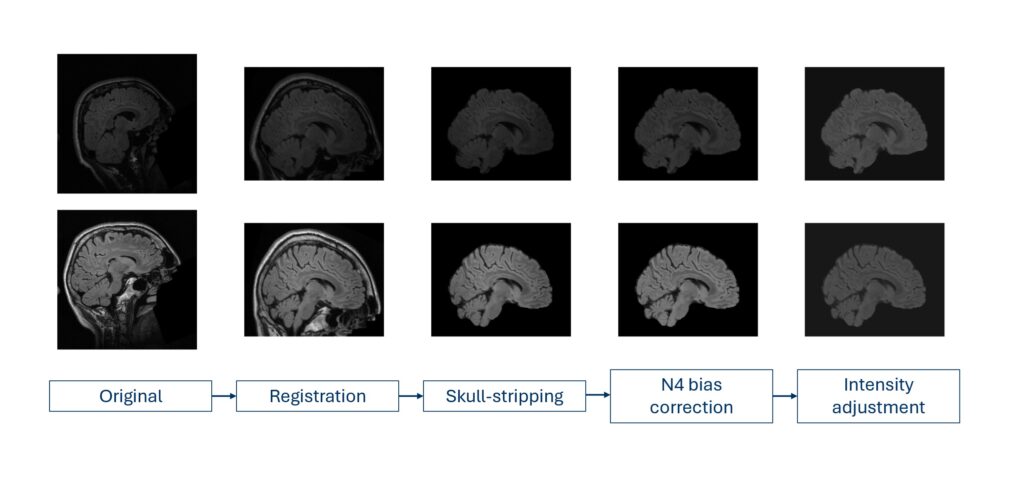About
About the Project
Epilepsy can significantly affect quality of life, particularly in patients with drug-resistant epilepsy, where medication does not adequately control seizures. A major cause is focal cortical dysplasia (FCD), a subtle malformation of the brain’s cortex that is often invisible in conventional MRI scans. As a result, up to half of such cases may go undetected, delaying treatment and increasing associated risks.
Our project addresses this challenge by creating an AI-powered system that enhances MRI resolution and assists in detecting these subtle lesions. The goal is not to replace clinicians, but to provide a decision-support tool that enhances MRI images, reduces diagnostic errors, shortens evaluation time, and increases precision in locating epileptic foci for surgical planning.
Objectives
The main goal of this project is to develop an AI-driven platform capable of automatically detecting, locating, and analyzing non-lesional focal epilepsy in MRI scans. Specific objectives include:
Data collection and labeling – Build a comprehensive dataset of MRI images from both patients with non-lesional focal epilepsy and healthy individuals, ensuring balanced gender representation.
Image enhancement – Develop probabilistic diffusion models for super-resolution to improve 1.5T MRI images, making subtle epilepsy-related features more visible.
Synthetic image generation – Generate realistic MRI images with labeled epilepsy foci to expand the AI training dataset.
Automated detection and segmentation – Train deep neural networks to identify and locate patterns of non-lesional focal epilepsy using both real and synthetic datasets.
Clinical validation – Collaborate with medical staff to evaluate the AI algorithms and investigate potential gender differences in disease presentation.
Model optimization and integration – Test, refine, and combine the models into a unified workflow for maximum accuracy in detection and characterization.
Web application development – Create a user-friendly online platform that allows radiologists and neurologists to utilize the AI system in clinical practice.

Scientific and Clinical Impact
Better images, better detection – Advanced deep learning diffusion models generate higher-resolution MRI scans and synthetic training data, improving the accuracy of lesion detection.
Accessible technology – Hospitals with standard 1.5T MRI machines can achieve enhanced diagnostic capabilities without costly equipment upgrades.
Decision support for clinicians – A web application allows radiologists and neurologists to upload scans, visualize enhanced results, and benefit from AI-assisted detection of epilepsy-related lesions.
Contribution to research – Findings will be disseminated through publications, conferences, and anonymized open datasets, supporting global progress in medical imaging and epilepsy care.
Together, these advances will enhance early diagnosis and support more effective treatment planning for patients with drug-resistant epilepsy.
Project Details
Title: “Automatic Detection of Non-Lesional Focal Epilepsy Using Deep Probabilistic Diffusion Neural Models”
Code: PID2022-136764OA-I00


